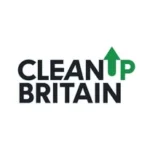We fight for long-term, systemic change by influencing government policy, working to change the behaviour of the 20 million people who drop litter, and campaigning for sustainable, evidence-based solutions.
We address root causes, hold local and central government to account and advocate for joined-up, effective action.

WHAT WE DO
LOBBYING
Championing policy reform
We engage directly with local authorities and government to expose systemic failings and push for stronger legislation, better enforcement, and joined-up responsibility.
AWARENESS
Creating public momentum
We use TV, radio, social media and high-profile campaigns to drive awareness of our work and push litter and fly-tipping higher up the national agenda.
RESEARCH
Generating new data
We embrace an evidence-based approach to our policy-making which is grounded in practical reality.
SOLUTIONS
Driving behavioural change
We work with the experts to develop and test solutions, policies and best practice for implementation at local and national level.

